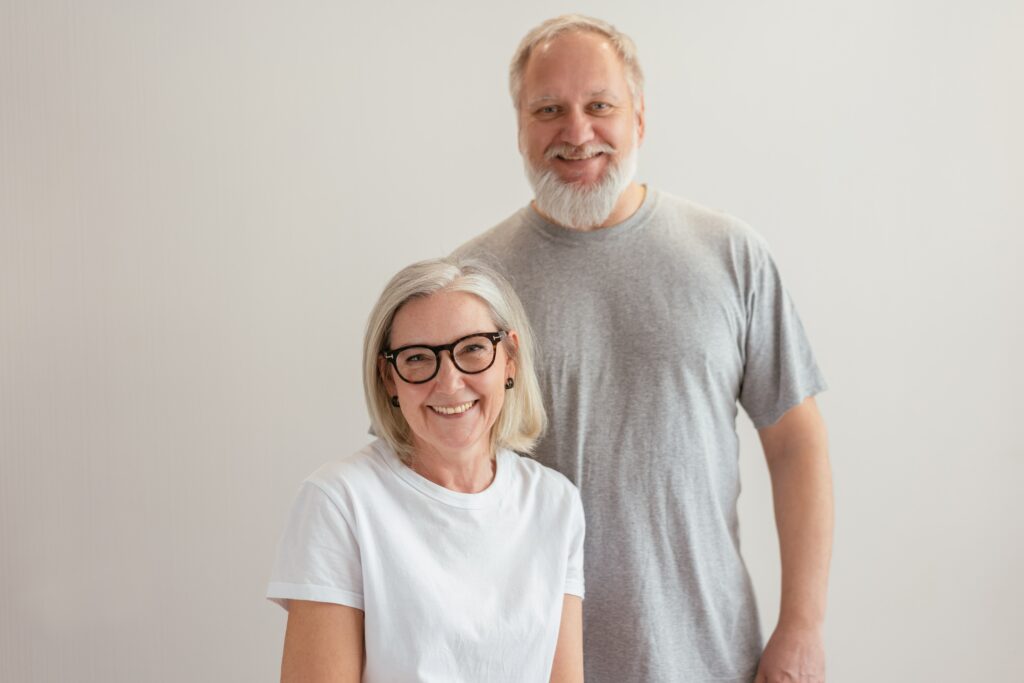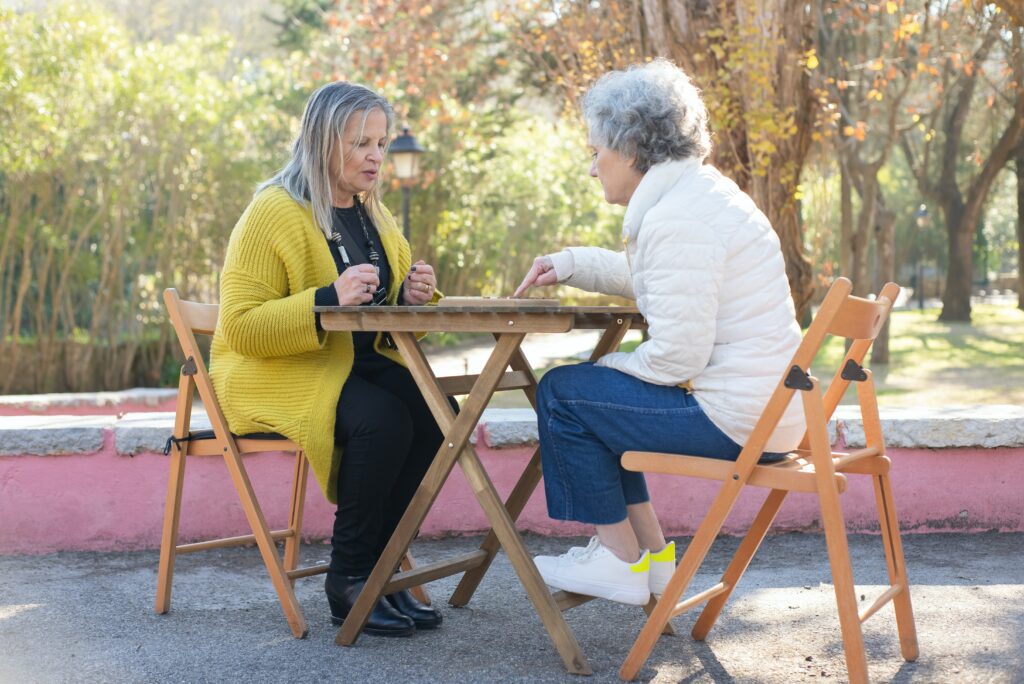Reason Behind Why Older Adults Lose Weight
Losing weight is often a positive thing. People of all ages can benefit from losing extra weight with a healthy diet and regular exercise, which lowers blood pressure, lowers the chance of developing diabetes, and strengthens the heart.
Yet, it may indicate a significant underlying old age problem that needs to be addressed if an elderly loved one loses weight abruptly and without intent. Poorly handling the circumstance can significantly negatively influence one’s general well-being and quality of life, particularly for older people.
See why older people lose weight by reading this article.
Unexplained Weight Reduction: What is It?
Unintentional weight loss is when you lose weight without intending to. Older adults frequently lose weight, with 25% experiencing unanticipated weight reduction.
While medical issues can occasionally play a role in abrupt weight loss in older populations, this is not always the case.
When a person loses a significant amount of weight within six to twelve months without intending to do so, and the weight reduction is not the consequence of dietary or lifestyle changes, it is called unexplained weight loss. Being aware of the indicators is vital since unexpected weight loss might point to a serious health issue.
What’s Normal and Unusual About Weight Loss as You Get Older?
Normal decrease in weight: As you age, you lose lean body mass, including muscle and bone density. Our lean body mass declines by over half a pound yearly at age 30.
Exceptional weight loss: It’s average for those over 65 to lose 0.2 to 0.4 pounds of body weight annually. If you lose 5% or more of your body weight every 6–12 months or longer, unintentional weight loss may be harmful.
Seniors’ Abrupt Weight Reduction Due to Health Risks
Older persons who suddenly lose weight may experience major health implications, such as:
- Heightened tiredness
- Loss of the capacity for routine activities, including washing, grooming, and clothing
- Greater likelihood of injury and falls
- Reduced immune system performance
- Cognitive and mood problems change
- Increased chance of infection
- Loss of freedom, necessitating in-home nursing or a move to long-term care in nursing homes or institutions for assisted living
Any of these factors impair the joy and contentment our elders should feel in their golden years. It makes it essential to identify the issue before things go worse.
Health Issues Related to Weight Loss
You must maintain a healthy weight to be healthy and independent as you age. For various causes, unintentional weight loss is a significant risk factor in older adults.
As you age, unintentionally losing too much weight might lead to the following:
- The lower level of quality of life
- Increased risk of death and disease
- A decline in physical activities that promote health
- Increased risk of health-related accidents like immobility and bone fractures
- Greater risk for admission to a hospital or other institution
Why has my senior family member lost such a lot of weight?
There are typically six main causes for older persons to have sudden weight loss:
- Social isolation: Because of the COVID-19 pandemic’s public health restrictions, several social events, family gatherings, and public trips were postponed. It can make elderly persons more socially isolated than ever, especially those who live alone. Isolation-related loneliness can result in a loss of appetite or a lack of motivation to cook and consume healthful meals.
- Medication reaction: Older persons who take some drugs may experience weight loss as well as cognitive disabilities because the side effects cause them to feel less hungry. Dry mouth, nausea, vomiting, and changed taste or smell are some of these adverse effects. Polypharmacy, the mixing of many drugs, has been linked to anorexia.
- Inability to carry out activities of daily living (ADLs): A lack of ADL performance may result in unexpected weight loss. For instance, a senior citizen without a car would have to walk or take public transportation to the food shop. Maintaining a balanced calorie intake may require carrying groceries for a longer time, resulting in less food in the pantry and fewer meals.
- Natural aging process: It’s also possible that as we are in the aging stage, their bodies naturally change. People often undergo muscular atrophy, bone density loss, and a decrease in liver and kidney cells as they age. Moreover, the body holds less water as a result of tissue loss.
- Chronic medical condition: Older persons may lose weight due to underlying chronic conditions such as cancer, Parkinson’s, hyperthyroidism, heart disease, uncontrolled diabetes, and gastrointestinal problems. These ailments can alter appetite, eating patterns, and weight control in various ways.
How to Keep a Healthy Weight as You Get Older
In order to be healthy and independent as you age, you must maintain a healthy weight. These are some guidelines for keeping older adults at a healthy weight.
- Diet: As you age, eating a healthy diet becomes increasingly vital. Many health issues can be avoided with a balanced diet. A healthy diet helps you seem younger as the years go by.
- Do moderate activity for at least 30 minutes each day (brisk walking, gardening, swimming, etc.
- To help maintain your muscle mass, include strength training in your workout regimen. You may do this by utilizing weight machines at the gym, lighter portable weights, or your body weight as resistance, as in yoga or Pilates.
- Keep hydrated by consuming 64 ounces of water daily, directly from meals or partially from beverages.
- Eat more frequent, smaller meals and snacks, and limit your fasting to no more than three hours.
- Ensure you consume one gram of protein for every kilogram (2.2 pounds) of body weight, with wild salmon, whole eggs, organic whey protein powder, and grass-fed beef as your main sources.
Getting Help for Unexpected Weight Loss
The approaches to reverse unintended weight loss typically rely on the initial cause of the weight loss. A doctor can frequently prescribe drugs to cure physiological problems, enhancing general health conditions that cause the patient to lose weight.
Of course, the same drugs may also have side effects. Patients should inform their doctors immediately if such is the case and ask whether there are any comparable options that would be better appropriate.
Support is one of the nicest things you can provide your loved one regarding psychological and emotional concerns. Helping them maintain their independence and confidence can go a long way toward preventing isolation, despair, and other circumstances that might result in unhealthily losing weight.
Bottomline
The way the body uses food for energy might alter as we age. Some older persons must increase their activity level or reduce their calorie intake to maintain or reach their target weight. Unintentional weight loss may occur in other elderly persons. It can happen if you have less appetite, difficulty leaving the house to buy food, pain when chewing or swallowing, or forget to eat.
Eating nutritious meals is important whether you are attempting to gain weight or lose it. Strive to maintain a diet high in fruits, vegetables, whole grains, low-fat dairy, and lean proteins. There are steps you may take if you’re worried about your weight and want to make changes. See a healthcare provider for advice on how to adjust your lifestyle in a way that is beneficial for you.
Further Readings
What Are Normal Aches And Pains of Aging?
Hygiene For Seniors: How Frequently Should An Older Person Bathe?






